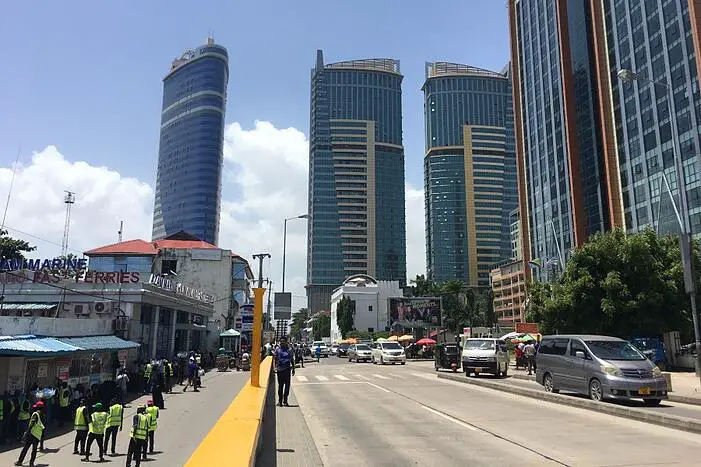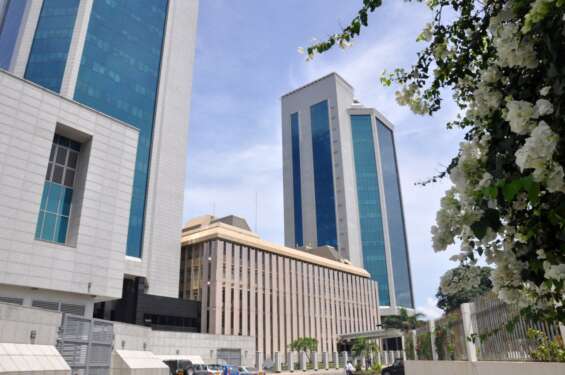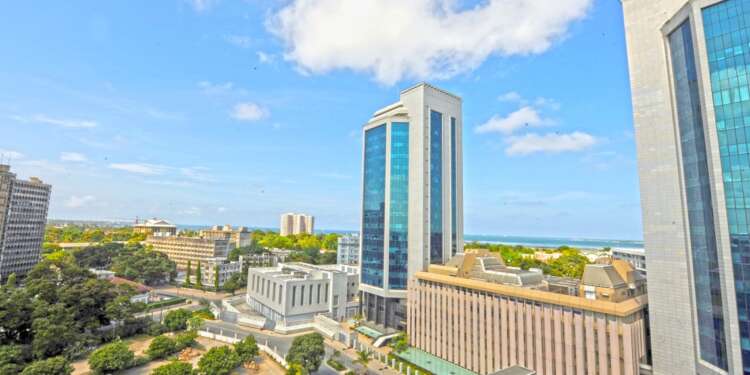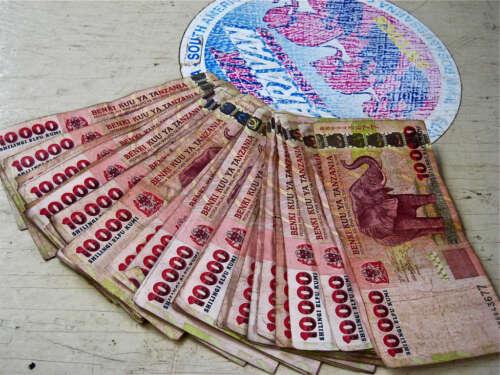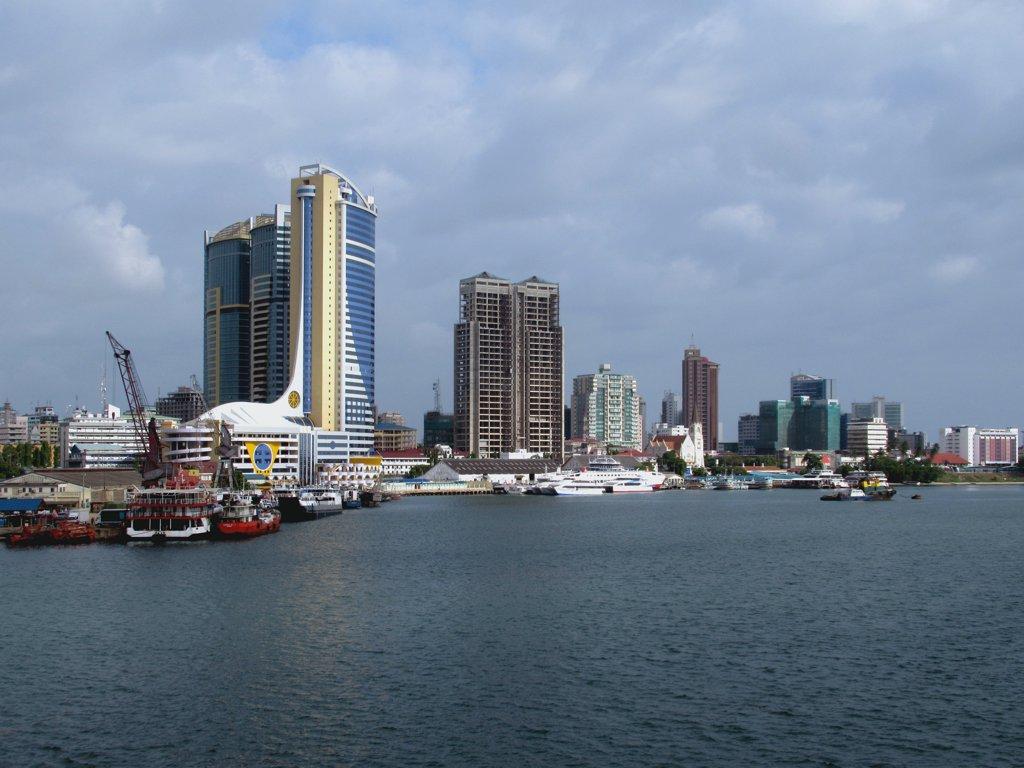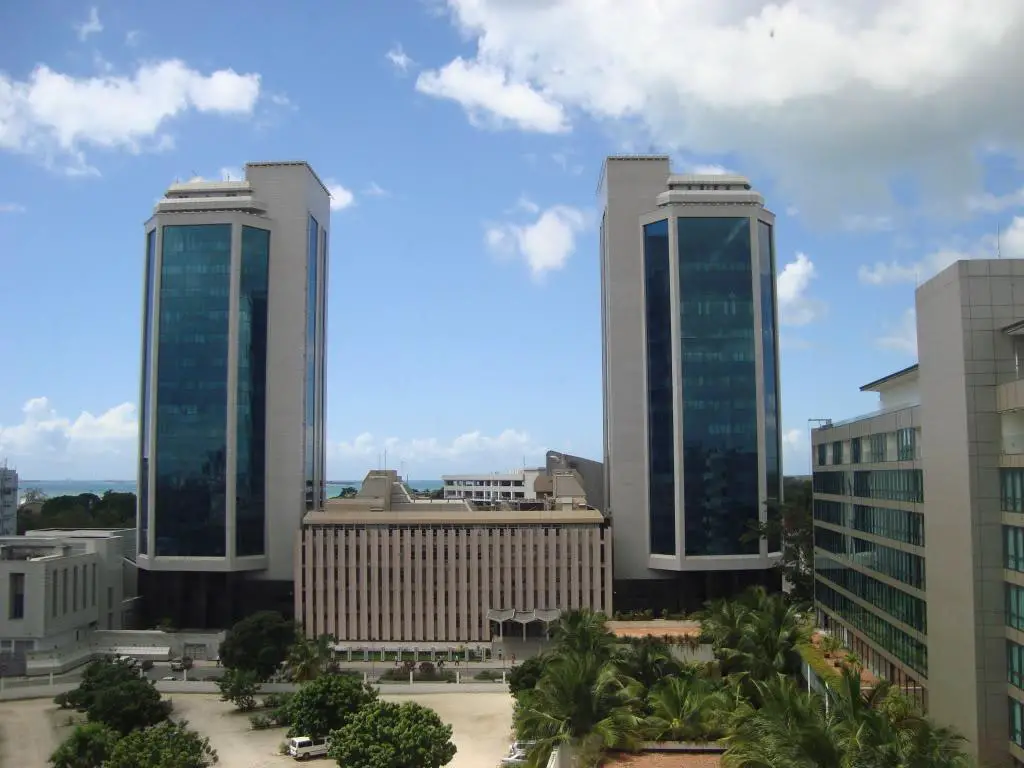- How transition finance can catalyse Africa’s green industrial revolution
- Stanbic PMI Report: Mixed performance as Kenya’s agriculture, construction offset manufacturing decline
- Uganda’s land management gets a tech makeover to boost transparency
- Nigeria’s output dips fastest in 19 months on a sharp rise in costs
- Apple faces growing backlash over Congo exploitation
- Why East Africa is staring at higher wheat prices in 2025
- Nairobi Gate SEZ pumps $7 million into Kenya’s agro-processing industry
- What impact will the US election have on Africa?
Browsing: Bank of Tanzania
Tanzania economy is projected to grow at 5.6 per cent, the central bank of Tanzania (BoT) revealed during its May 28, 2021, Monetary Policy Committee (MPC).
As Tanzania ascend towards marking a year since upgraded to a low-middle-income country, it has been taking serious steps to revamp its economy, by reshuffling its investment and trading operations.
Unlike 2020 whereas the entire world was battling COVID-19 this year the MPC noted that it was “pleased with good performance of the economy, which is amid global spillover of the adverse impact of the pandemic. Growth is estimated at 4.8 per cent in 2020, lower than the projection of 5.5 per cent, reflecting the adverse impact of the pandemic”
Further, the committee noted that the economy in 2021 will be reinforced by several sectors particularly construction, agriculture and transport and communications activities.
These projects are rather quite far from the African Development Bank …
The central bank of Tanzania’s economic bulletin for the quarter ending March 2021, analyzed the economic performance of the Zanzibar-semi autonomous region of Tanzania, which is widely known for its exotic tourism experience and spice farming.
The detailed report brought up interesting issues along the lines of clove production, inflation, public finance, imports, and exports.
READ:How Zanzibar’s presidency 100 days in office cast economic prospects
Clove performance
Zanzibar has marked its spot across the region within clove production over the past decade, hence over the past years, performance in the sub-sector has been dwindling.
According to the bulletin, “There were no cloves procured during the quarter under review due to low global demand, which resulted in a significant decrease in prices. As for seaweeds, 2,770.6 tonnes were procured compared with 2,236.5 tonnes procured in the corresponding period in 2020,” BoT report.
On the side of the aisle, Statista—a world …
The central bank of Tanzania (BoT) releases the April 2021 monthly economic review and it depicted the economy to fair rather moderately amid the waves of COVID-19 recovery globally.
At the moment, Tanzania economy is projected to grow by 5.7 per cent this year, propelled by public investment and normalization of global trade and investment, according to BoT.
Inflation
According to the report, inflation remained low and within the benchmarks set forth at both the national regional levels.
“Year-on-year headline inflation eased to 3.2 per cent in March 2021 from 3.3 per cent in the preceding month and 3.4 per cent in the corresponding period in 2020, driven mainly by the slowdown in prices of rentals paid by tenants, gas, charcoal, firewood, and transportation cost,” the central bank report said.
Further on the line, on a month-to-month basis, headline inflation stabilized at 0.9 per cent in March 2021 as in …
The central bank of Tanzania (BoT) published its January 2021 monthly economic review report, breaking down several performance aspects of various sectors including exports, imports, as well as the national debt.
Inflation
On this section of the economy, the central bank report showed the year-on-year headline inflation remained moderate at 3.2 per cent in December 2020, compared to 3 per cent in the earlier month.
The report argued that the changes occurred due to price-driven onto food and non-food items. On the overall basis, the inflation rate was within the regional benchmarks as well as below the country medium-term target of 5.0 per cent.
“On month-to-month headline inflation increased to 0.8 per cent in December 2020 compared to 0.3 per cent in the previous month and 0.6 per cent recorded in the corresponding period in 2019” the report noted.
However, the bank report highlighted that inflation is projected to remain …
The Bank of Tanzania (BoT) has reassured customers and stakeholders of the China Commercial Bank Ltd. in Dar es Salaam that their interests are safe and secured.
“We want the public and all stakeholders to know that their money is safe and secure,” said a BoT source (name withheld).
The source went on to state that, as the official press statement from the bank says, all the stakeholders’ interests will be protected.
However, customers will not be able to carry out any transactions for the 3 months’ period that the bank will be closed.
On the morning of 19th November 2020, the central bank of Tanzania (BoT) announced that ‘following of China Commercial Bank Limited to meet regulatory requirements regarding capital adequacy, the Bank of Tanzania has, pursuant to powers conferred to it under Section 56(1)(g)(i) and (iii) of the country’s Banking and Financial Institutions Act 2006, taken over …
Central Bank of Tanzania
Tanzania Central Bank (Bank of Tanzania) has released it’s monthly economic review bulletin for September 2020, earlier this week, which displayed rather a good prospect for Tanzania’s economy.
The bulletin comes within the same week, when the central bank’s Monetary Policy Committee (MPC) affirmed that Tanzania’s economy will grow by 5.5 per cent in 2020, according to information from The Citizen.
Further, the team noted that—the bank’s accommodative monetary policy was being implemented in a fashion that macroeconomic indicator remained positive, despite the impact of coronavirus (COVID-19) on the global economy.
However, the monthly economic review depicted inflation at a lower level, while exports and foreign exchange reserves remained rather adequate.
Inflation
The report showcased the headline inflation at a stabilized point, standing at 3.3 per cent in August 2020. On a comparison basis, inflation is at a much lower point—than 3.6 per cent in August …
The monthly economic review produced by the Tanzania central bank (BoT), depicted rather positive prospects of the economy, such as inflation, fuel prices and food stocks, despite the grim grip of the coronavirus (COVID-19), which hurt several sectors of the economy.
The report published on Tuesday, marking the financial year ending June 30, 2020, also displayed good performance of the exports, foreign exchange reserves and interest rates.
Revenue collection
Government budgetary operations took a slight hit, as the domestic revenue collection performed below the target due to the virus grip, standing at almost $559,000.
“However, the collection was higher than in the corresponding %54.4 million and an increase of $ 867.1 million from the end of the preceding month and the corresponding month of 2019, respectively. Much of the external debt stock was central government at 78.2 per cent” the monthly review noted.
Domestic financial markets
According to the central …
The central bank of Tanzania’s (BoT) monthly economic edition of April 2020, has indicated that the impact of the coronavirus (COVID-19) on the economy became visible in March and April 2020 as Tanzania’s trade partners intensified the limit to spread of the virus.
Inflation
According to the report, inflation rate remained low amidst the economic challenges caused the virus containment measures adopted to limit the spread of the COVID-19. The overall inflation remained low to 3.4 per cent in March 2020 from 3.7 per cent in February 2020.
The decrease was driven by both food and non-food inflation, hence—the report argued that “the latter having a significant impact because of large weight in the consumer basket”
The edition noted that, on the month to month overall prices rose by 1.1 per cent in March 2020 compared to 1.4 per cent in the same month last year.
“Headline inflation is projected …
Recently I did an interview with the guys at the “State of the Markets” podcast. In it, I discuss many things, including a few specific investment ideas — stocks I have personally invested in, over the last 18 months, in Tanzania, which I plan to hold for many years.
If you haven’t listened to it yet, you may find it worthwhile. You can replay the entire conversation at the Global Value Hunter homepage.
One of the core attractions of investing in less developed markets around the world is that they still inhabit a normal universe where interest rates are positive, and it’s possible to earn excellent real rates of return on plain vanilla investments, such as government bonds and bank deposits.
In Tanzania, for example, one can currently attain as much as a 15.85% yield on 20-year government bonds. What’s more is that inflation in Tanzania is only 3.3%, …





